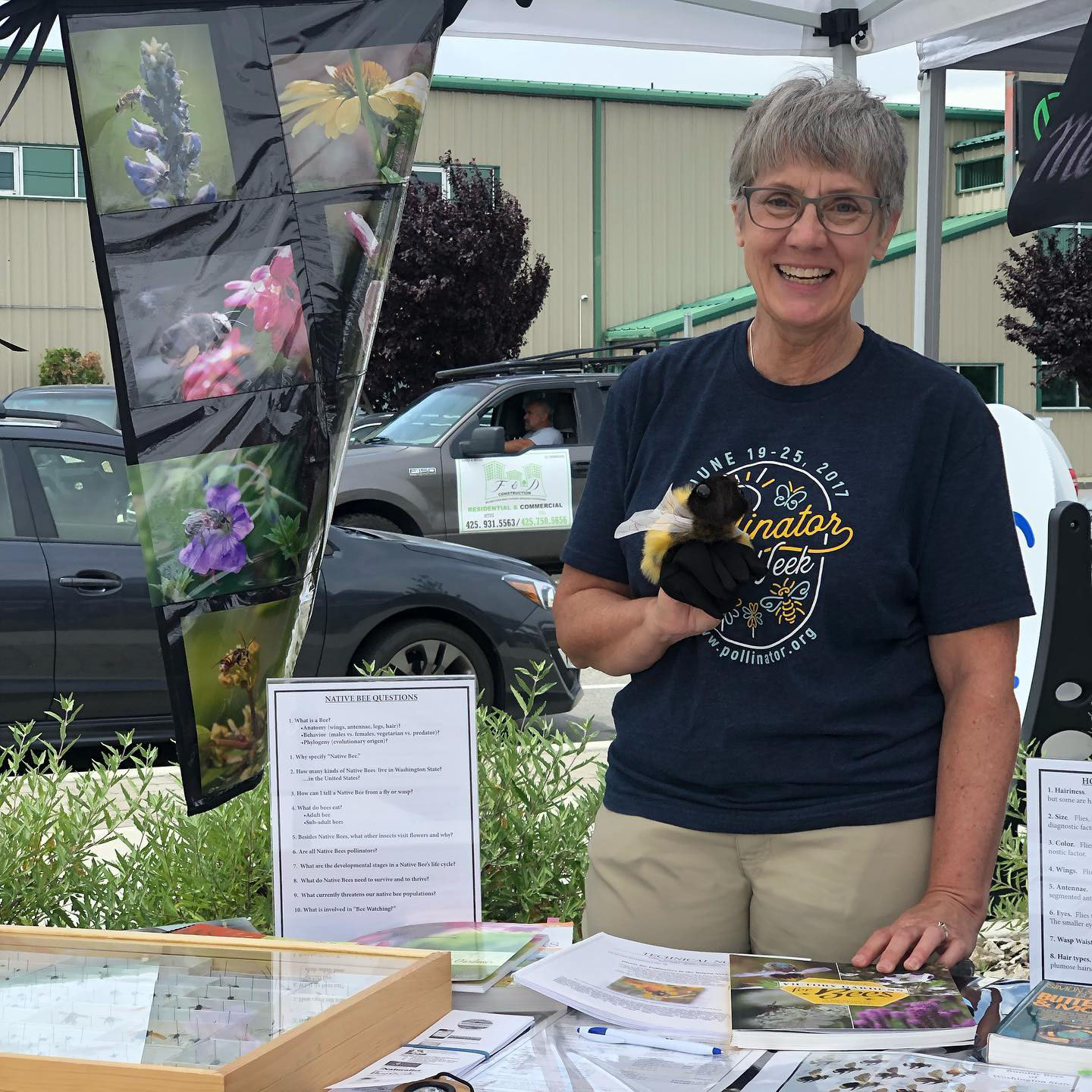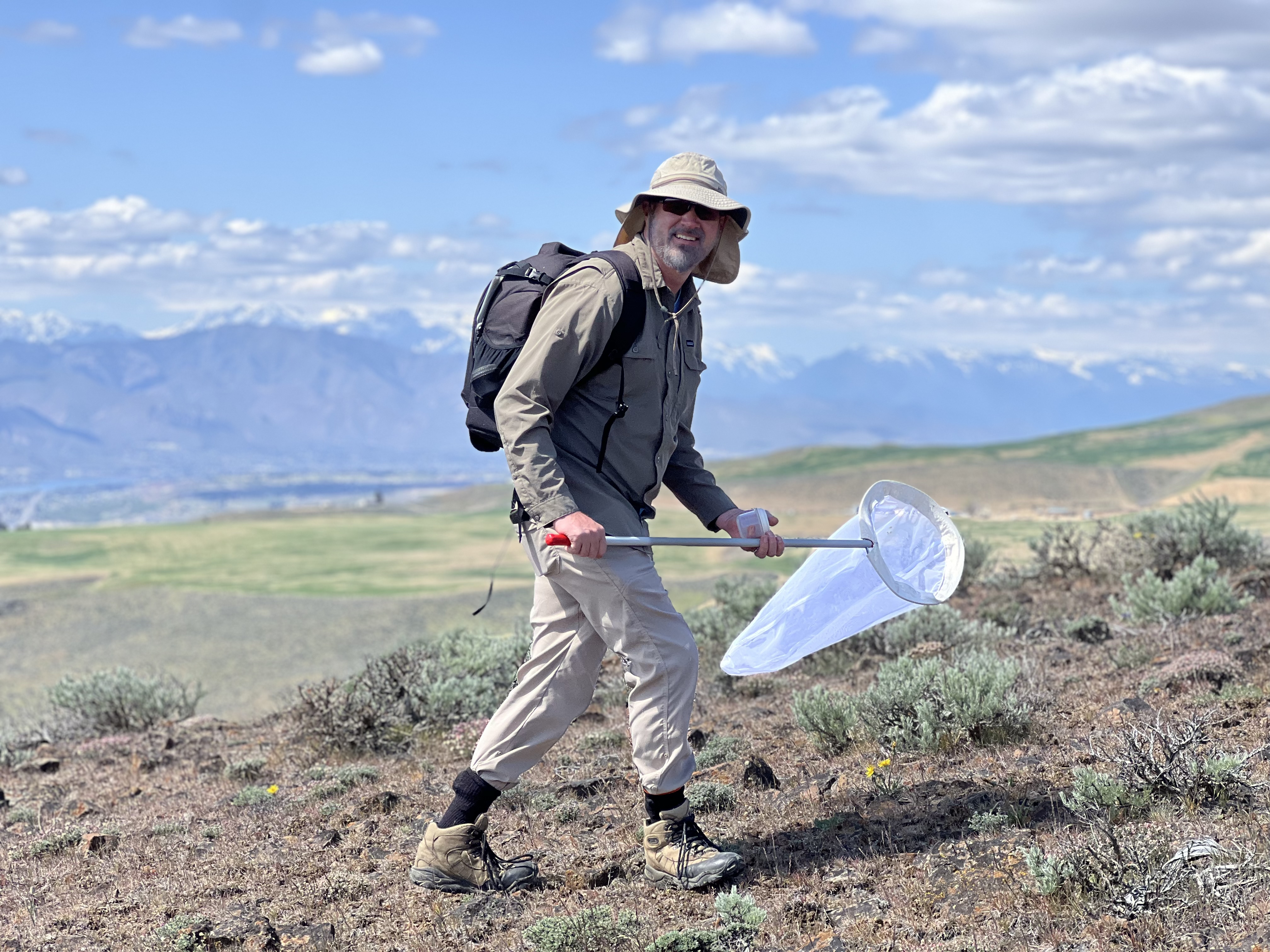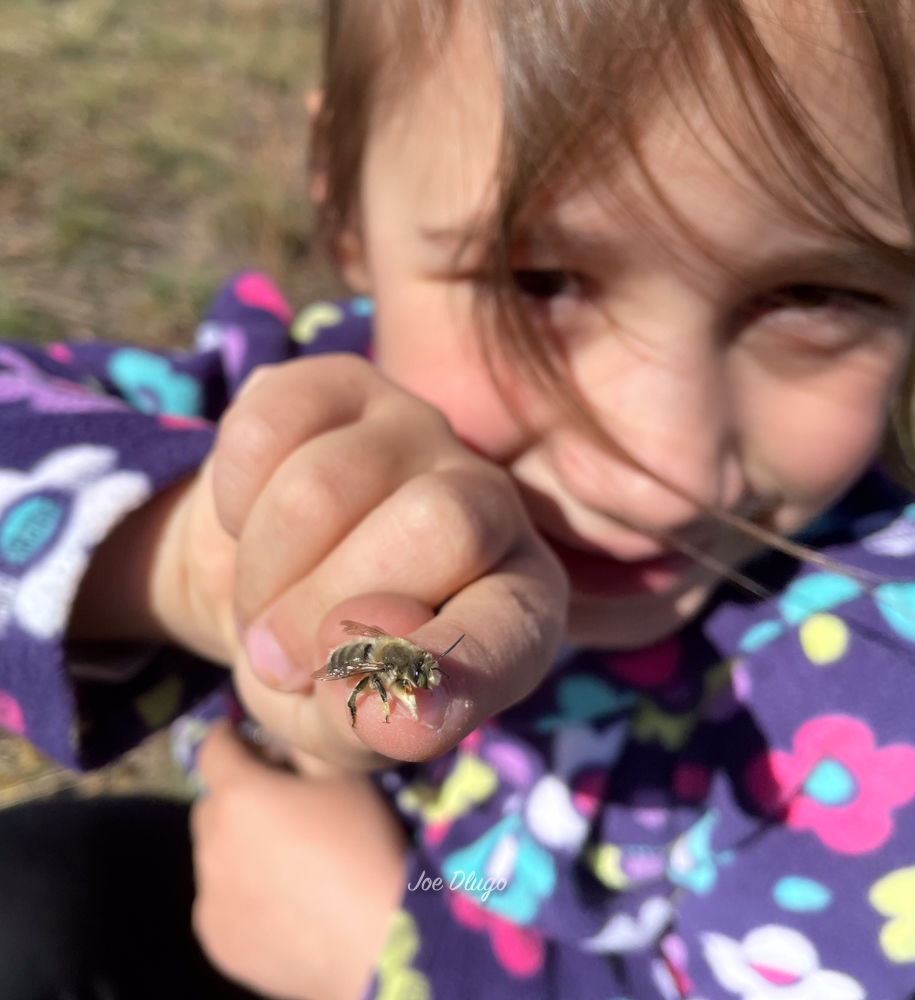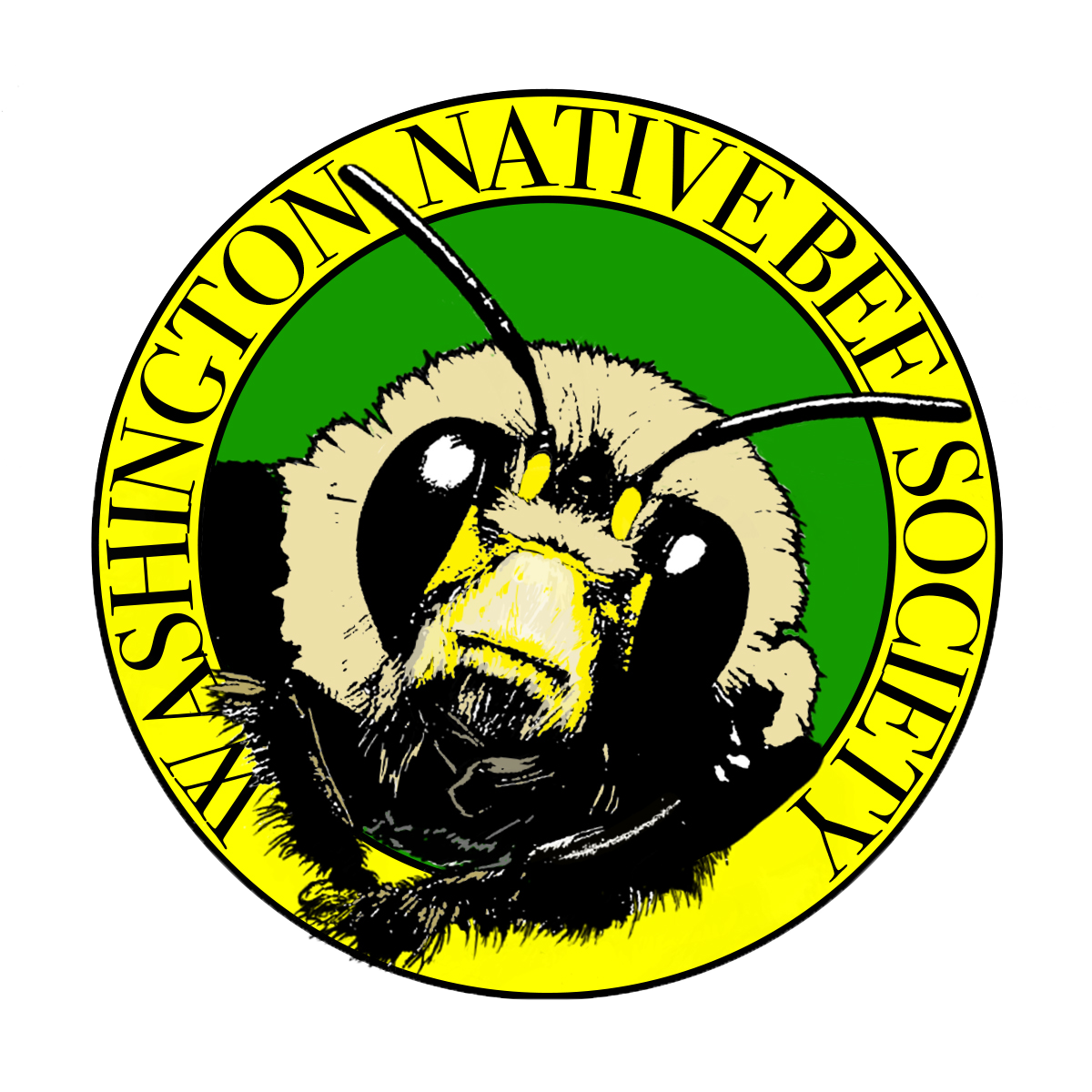



The Washington Native Bee Society
Working together to make a better world for bees.



The Washington Native Bee Society was created in 2020 with the aim of providing a common location for all of Washington's solitary bee enthusiasts to convene in a semi-social way. We may not have a hive mind but will work together to share resources and information. We strive to build productive relationships and to make a positive impact by promoting awareness and conservation of Washington’s native bees.
We are a supportive community where bee enthusiasts make connections and relationships while collaborating, sharing resources, and generally “geeking out” about bees.
We are an inclusive group that encourages bee enthusiasts of all interest levels and backgrounds to get involved, from the average lay person or student to the full-time bee researcher.
We endeavor to create a platform for groups and individuals throughout the State of Washington to show off their research, artwork, and community projects while also acting as an umbrella under which we can embrace and build up those in the bee community that need support.
If you have an interest in native bees, we welcome you to join us for monthly meetings, held via Zoom every fourth Thursday at 7:30 p.m. Please join our mailing list to receive the Zoom invitation. We look forward to having you.
*The Washington Native Bee Society is the first of its kind in the United States. Interested in starting a bee society or similar organization in your state (pdf download)
We are governed by a dedicated board of directors who volunteer their time and expertise to further our mission of protecting and promoting native bees. Learn more about this dynamic team.
The Washington Native Bee Society has made significant strides in native bee conservation, including involvement in habitat restoration projects, educational outreach programs, and research.
Add paragraph text. Click “Edit Text” to update the font, size and more. To change and reuse text themes, go to Site Styles.
The Don Rolfs Outstanding Volunteer Award is given every January to individuals who have made significant impacts in the conservation of native bees and their habitats in Washington State.
Diversity, Equity, and Inclusion Statement
We welcome people from Indigenous communities to join and take leadership roles within WaNBS, and we welcome collaboration with and feedback from Indigenous groups. We recognize that the history of environmental work includes many cases of exclusion and harm of Indigenous peoples, and that these injustices continue today. We commit to learning about this history and striving to instead act in a way that is inclusive of and respectful to these groups.
We also recognize that other groups, including racial, ethnic, gender, and sexual minorities and those with disabilities, have also been marginalized within our society; we believe that we must continuously and actively work for justice and inclusion both within WaNBS and in the impact WaNBS has on our society. We aim to make WaNBS a community in which people from marginalized groups can thrive, can speak and be truly heard, can lead, and can enjoy the wonder of bees in the company of fellow bee enthusiasts. To make this happen, we commit to working to understand our own biases, to educating each other, and to interrupting bias even when it is uncomfortable. We commit to learning about the experiences of people in minority groups, to taking criticism with appreciation for those who give it, and to working to repair any harm that we cause. We commit to examining the impacts of our work and striving to ensure that it is inclusive of and beneficial to people in marginalized groups. We commit to recognizing and supporting conservation work led by people in marginalized groups, and we affirm our belief that diversity in our perspectives and experiences makes us more effective at finding innovative ways to achieve the goals of WaNBS.
About our name
The “native” in the name of our group refers to the ecological term “native species,” referring to non-human species that have long been present in this part of the world rather than having been recently introduced by humans. We are not using it in the sense of “Native American” and we do not represent any Indigenous community. Please be aware that the word “Native” in reference to people has a complex history and for some people is not a preferred term. We encourage all to learn about how each person and group of people prefers to be identified and to respectfully follow their lead.

Bee habitat: Balsamroot in the Drumheller Channels, Columbia National Wildlife Refuge
Carved from cataclysmic ice age floods, the Drumheller Channels are one of the most striking features of the "Channeled Scablands" complex found throughout eastern Washington. These desert butte and basin lands are often adorned with striking wildflower displays which attract a great diversity of native bees and other pollinators. Pictured here is a late April day with balsamroot in full bloom. Image by Joe Dlugo.



